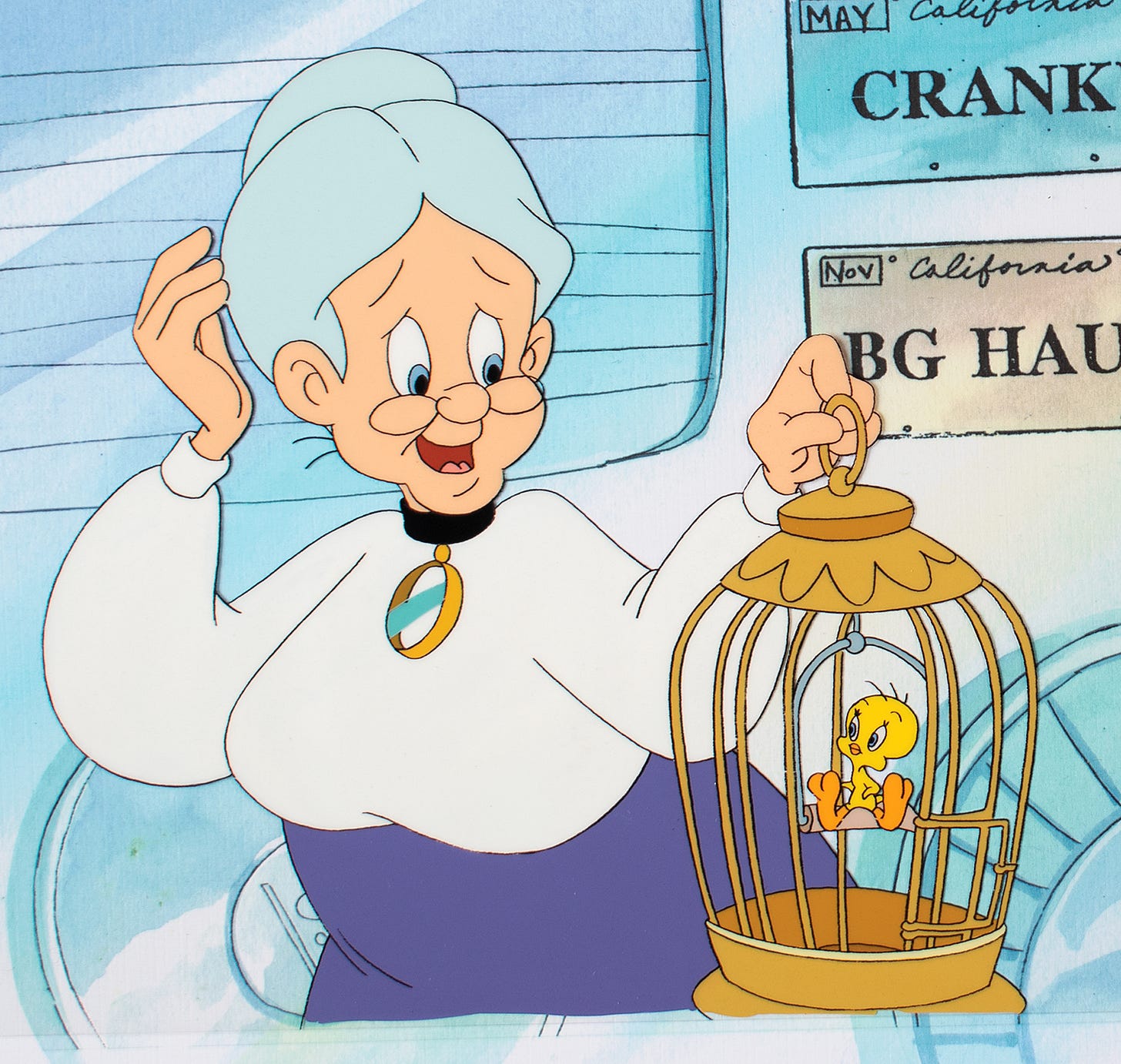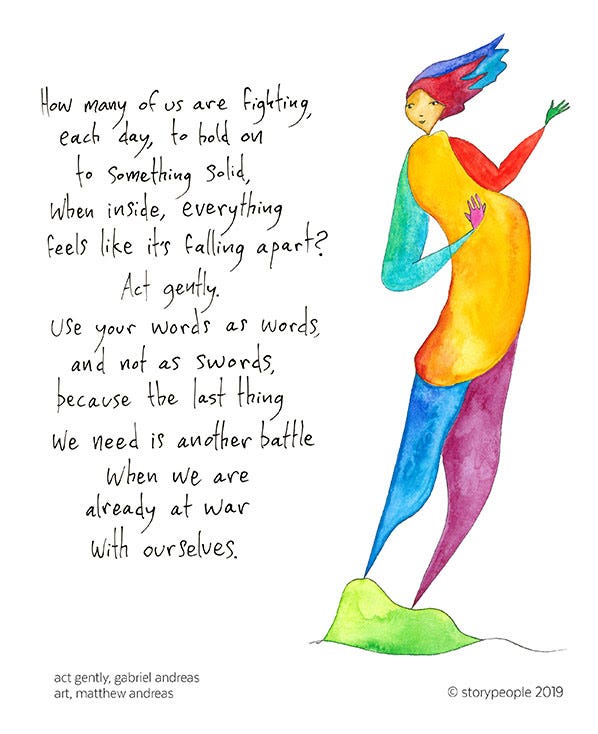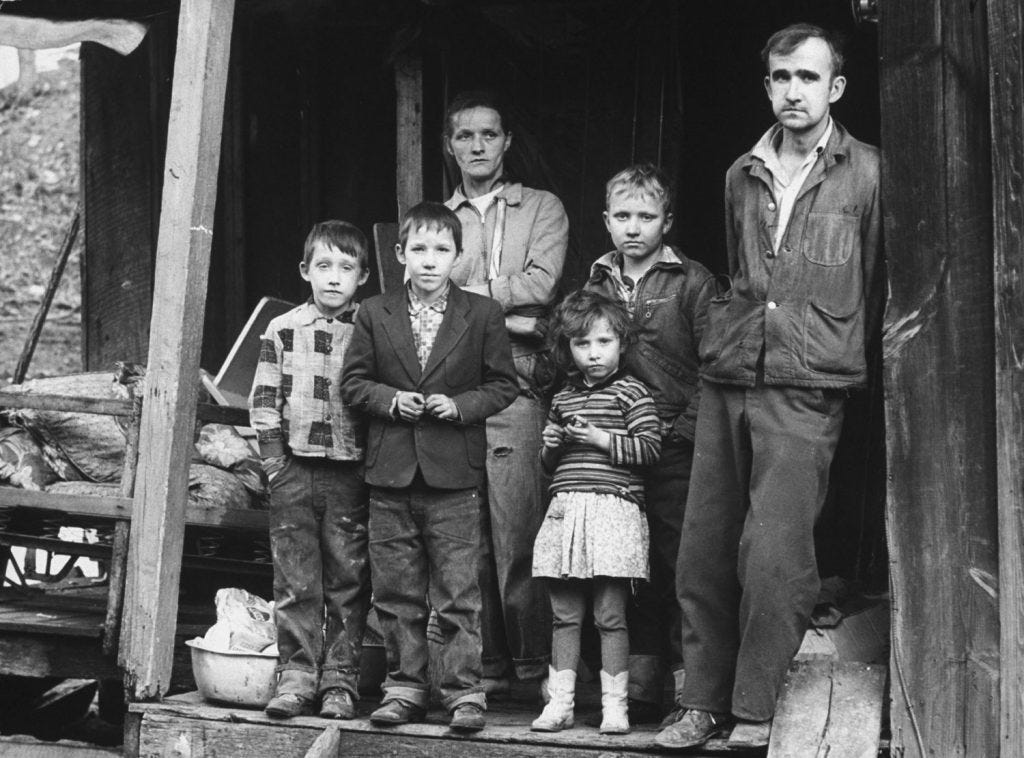Betty's Appalachian Sweet Corn Pudding
She
was, without a doubt, the most genuinely kind, sweet, gentle soul I’ve
ever met, so much so that, in my eyes, anyway, she sometimes rounded the
corner of reality and almost became a caricature of herself - even to
her, which made her giggle despite herself. Her husband, on the other
hand, was a rumpled, crumpled, withered shell of a man for whom the
adjective ‘cantankerous’ found a new depth of meaning.
Jack
was my Hospice patient and like many on the Western side of Sussex
County suffered from COPD (Chronic Obstructive Pulmonary Disease). After
years of smoking unfiltered Lucky Strike cigarettes and inhaling farm
petrol and Monsanto and God knows what else in the steel mills, his
disease process was now classified as “end stage”. He was on continuous
oxygen therapy, delivered via nasal cannula, and was now receiving
nebulizer treatments - liquid morphine delivered via a supersaturated
mist of water - four times a day.
Like my
experience with many COPD patients, he, as Hospice professionals like to
say, “had a few control issues”. Well, if you aren’t in control of your
breathing, you’d have “control issues,” too. But Jack, well now, Jack’s
issues with control were Black-belt level. He could bark orders laced
with denigrating insults that would make a Drill Sargeant feel like a
novice.
After 54 years of marriage, Betty was a pro
at deflection. She reminded me of Emma Webster, Tweety Bird’s Granny,
who seemed to manage the ongoing war between Sylvester the Cat, Tweety
Bird, and Hector the Bulldog with nonplussed charm and delight. Nothing
ever dampened her spirit.
Unless you crossed her.
And then she could whip out a cast iron skillet from thin air, hold it
up like a stop sign until, as she said in her cheeriest voice, you
“changed your tune,” and then she’d go right back to dusting counters
with the sweetest smile you ever did see, chirping her pleasantries if
only to herself, if need be.
She seemed to be
holding in her heart a secret interior story that she listened to rather
than paying any nevermind to what was going on around her. I suppose,
if she did, she’d just crumble and she knew that was simply not going to
happen. Could not possibly happen. Not in this life.

Betty
and Jack were from “dirt poor” but “land tough” Appalachian stock. The
genetics of Scotch-Irish, German, and English people who had fled the
hardships and poverty of Europe, combined with the Native American
tribal communities who had lived there for centuries, gave them not only
the resilience and tough exterior they needed but an internal emotional
and spiritual strength that helped them shape their own Appalachian
culture through language, music, religion, and agriculture. And, food.
More on that in a minute.
”Their people” - both
Jack and Betty’s - had settled in Northwestern Pennsylvania where they
worked the farms and then migrated to the East to work the coal mines or
down to the steel mills in Pittsburgh or the textiles, shipbuilding,
and iron production of Philadelphia. Like our biblical ancestors who
wandered around wherever there was water and grass for their flock, they
moved anywhere there were jobs.
Jack and Betty had
faired pretty well. Jack “lucked out,” Betty said and had gotten a
good-paying job in the steel industry. Betty was able to stay home and
raise their three girls, although she did work part-time in the school
cafeteria when the girls got older. She carefully saved her small salary
as the downpayment for their manufactured home in a trailer park
outside the city limits.
Eventually, as the girls
graduated high school (an accomplishment neither Jack nor Betty had been
able to achieve) and left home, they sold their home in PA and moved to
another manufactured home in Sussex County, Delaware, where the
property taxes were low and the cost of living was more affordable.
The
girls were all married and had kids of their own. They had good
educations and good jobs and had married well. They had good cars and
nice homes and enjoyed wonderful family vacations, living a modest
middle-class life that was well beyond even the wildest dreams of their
parents.
Jack and Betty were very proud of their
family. You’d never know it by Jack, though. He seemed to have been in a
perpetual bad mood for most of his life. One day was particularly bad.
Betty and I had been talking about a documentary she had seen on
television the night before about the slavery of “the Indians and the
Blacks,” she said, “in Appalachia. Can you believe that? Slaves? In
Appalachia?”
”Why,” she said, “I had no idea. I
mean, we were all dirt poor. I didn’t have my own pair of shoes until I
was 14 years old. Mama did her best but life was hard. Slaves? How could
there be slaves? Who had the money to own them?” she asked in the
purest innocent ignorance.
That’s when Jack
exploded. “Oh, you feel bad for the Blacks and the Indians, do you? What
about the White slaves? Huh? What about us? Do you feel bad for White
slaves?”
Betty looked bewildered. “Joseph Arlo Smith, what are you talking about?” she asked.
That’s
when Jack told the story that had been eating at his insides since the
time he was seven years old and his mother died and his father sent him
down to a neighbor’s farm to work his field.
“I was
only seven years old but I worked like a grown man, plowing, planting,
weeding, harvesting. I slept in the barn on the hay, just like the other
work animals, with just a thin blanket to cover me. I ate the leftovers
from the farmer’s table. I ate in the barn, just like the other work
animals. I remembered some of the letters they taught me in school and I
tried to read some, from the newspapers in the trash. I didn’t see my
family except for Christmas and Easter Day.”
Jack
started to have a bit of difficulty breathing. “Jack! Jack! Now, don’t
get yourself all upset. Let me get your rescue inhaler.” Betty said.
Jack shook his head. “No! Don’t give me that. I need you to listen to
me, Betty. I’ve never told you this part before. You need to know this.
You need to listen to this. Ain’t no one heard this before.”
”I
always thought Daddy had sent me there because he couldn’t care for us,
what with Mama gone. One day, the farmer came in and told me to get my
stuff and leave. He couldn’t afford me anymore. And I thought ‘Couldn’t
afford me’? What in the heck was he talking about?”
”So
I walked home and Daddy was waiting for me in the truck. Drove me right
down to another farm on the other side of the county but this time, he
said I wouldn’t be coming home anymore. Not for Christmas. Not for
Easter. This was going to be my new home and I’d better be good and I’d
better work hard and behave.”
”I was 12 years old. I
saw the man give my father some money. And that’s when I figured it
out. I only had a little bit of education. I could read some, but I was
pretty good at reading the writing on the wall. My father had sold me.
He had been collecting my salary from the other farmer. This one had
just bought me outright.”
”Do you know what that
means, woman? White slavery! That’s what it was. White slavery. By my
very own father! So, don’t go talking to me about the poor Blacks this
and the poor Indians that! What about the poor Whites? We was sold into
slavery, too. What about us, huh?”
There was no
discussion this time. Betty got up and got his rescue inhaler. “Here
now, puff on this, Jack, and calm yourself down.”
Jack
took some puffs and then, wiping the tears from his eyes he looked up
at her and said, his voice raspy and his breath labored, “And, you
wondered all those years why I am the way I am. You always asked me why I
couldn’t be more affectionate, especially to the girls. You asked why I
never held your hand. You asked why I always had to be in such a bad
mood all the time. You wondered why I wouldn’t go to church with you,
even on Christmas and Easter, why I didn’t want the chaplain here to
come visit.”
”Well, now you know. How can you show
love when love’s never been shown to you? Why go to church when God
never came to me, not one time in the field when my back was breaking?
Not one time of the many times I cried myself to sleep at night, out in
the barn, sleeping on the hay, with only the animals to hear me?”
”So,
when I was 15 years old, I got up early one morning and walked down to
the stream to wash myself. When I came up out of the water it came to
me. I could just walk away. I could just walk and keep on walking. And
so, I put on my clothes and I did just that and I never looked back.”
”But
somehow, I found you, Betty. I want you to know that you are the one
miracle I ever prayed for. You were more than any miracle I could have
asked for. You gave me three beautiful girls. We have a good life. But,
this . . . stuff . . . being so many years a white slave . . . well,
it’s just been a cancer eating me up all these years. It’s killing me,
Betty. Squeezing the air right out my lungs.”
”So, I
had to get this off my chest. I didn’t mean to. But, you know, with all
this stuff about the Blacks and the Indians . . . . and with the
chaplain here, and all . . .I couldn’t hold it in no more . . . Forgive
me, Betty. That’s what I mean to say. Forgive me, Betty. Understand,
please. I do love you, Betty. You’re the best thing that’s ever happened
to me in my whole life. I don’t want to lose you.”
Jack
could hardly breathe. His lips were turning blue. He was holding on so
hard to the armrest of his chair that his knuckles were white. Betty was
comforting him as she set up his nebulizer. Wiping the sweat from his
brow. Gently stroking his hair, wet with sweat, back from his face.
“There, now. Easy, now. Rest now, Jack.”
After
a few minutes, Jack was breathing easier. He tilted his head back on
the headrest of his recliner as Betty lifted the metal arm on the side
of the chair which lifted his legs. “You stay right here, Jack, and I’ll
fix you something. Okay?”
Jack nodded. Betty
looked at me and said, “I’m going to need your help in the kitchen. You,
my dear, are going to help me make Appalachian Sweet Corn Pudding.”
I
followed her into the kitchen as she spoke, her voice lower than normal
so as not to disturb Jack, but with that same, sweet, kind, gentle lilt
that seemed not to have been disturbed at all by what we had just
heard.
As we busied ourselves opening cans of corn
and creamed corn and getting the eggs and milk from the fridge and the
cornstarch and sugar from the pantry, Betty chatted merrily in her usual
chirpy cadence.
I think I was more stunned than I
realized. Jack’s story had shaken me to my core. The story and the raw
honesty and emotional pain of it all were finally hitting me.
Just
as I opened my mouth, Betty turned to me and said, “We are making
Appalachian Sweet Corn Pudding because that’s the one thing Jack
remembered his mother made and it’s the last thing she made before she
died. I knew it was special to him for that reason, but I . . . I . . .
I had no idea . . . . .”
And, with that, she
collapsed into my arms and cried and heaved and sobbed. I whispered
softly, “Of course you didn’t know. How would you know? He never told
you. I’ve got you, Betty. You go ahead and cry. I’ve got you.”
She
cried and cried some more and then, just as suddenly as she started,
she stopped, took a deep breath, dried her eyes with a tissue she had
retrieved from her pocket, and then shoved it back in, hard. She took
another deep breath, and said, “So, we’re going to make my grandmother’s
Appalachian Sweet Corn Pudding. Because it will make Jack feel better.
It will make Jack know that he is loved. And, because it will help you
know something about my people, and why we may be poor but we are strong
and good and kind.”
”You’ll help me make this,” she
said, in the kindest but firmest directive I think I’ve ever been
given. “I’ll give you my recipe. You’ll go and see Mrs. Jones down the
street and visit with her while the corn pudding cooks. And then, you’ll
come back and have a dish with us. And, you’ll know what love tastes
like.”
In
this morning’s Epistle, St. Paul writes to the beloved people of
Phillipi in Northern Greece from his jail cell in Rome - although some
scholars say Ephesus or Caesarea - somewhere between 60-62 BCE.
He
says something that has always caught me as a most beautiful way to
talk about the power of The Resurrection. “But our citizenship is in
heaven,” he says, adding, “He (Jesus) will transform the body of our
humiliation that it may be conformed to the body of his glory . . . ".
I
think I understood those words much better after I had tasted the first
spoon of Betty’s Appalachian Sweet Corn Pudding. Cynics will say that
it was probably the sugar but I felt instantly transported to my status
as a citizen in heaven.
I also understood why Jack had been so transformed every time Betty made him some sweet corn pudding. For just a few moments, all the years of his humiliation were washed away as the memories of his mother’s love flooded every corner of his being.
“Salvation is of the Lord,” we are taught to say,
meaning that salvation is a gift from God, not earned through human
effort. In the Black church, you’ll often hear folks repeat the words
of Nehemiah, “The joy of the Lord is my strength," meaning that finding
strength and resilience in faith and joy in God's presence is crucial
for navigating life's challenges.
Sometimes, the
gift of salvation comes from unexpected sources. The joy of the Lord can
be found in surprising places. I don’t know this for sure, but I
suspect Jack and Betty were saved, in some small part, by the joy of the
memories of love that were cooked into the Appalachian Sweet Corn
Pudding.
I know I am, every time I eat a spoonful.
Here, try some and see for yourself. It’s delicious as a side dish - I
often make it at Thanksgiving - but it’s fine all by itself. When no one
is looking I even eat spoonfuls of it - cold - right out of the dish in
the refrigerator.
It’s my passport that tells me
that, while I’m here on this earth, I’m just a resident alien. My
Baptismal Certificate is my Green Card. My citizenship is in heaven.
I’m a citizen of heaven. I have tasted love.
Betty’s Appalachian Sweet Corn Pudding
3 eggs
½ cup melted margarine
½ cup white sugar
1 (16-ounce) can whole kernel corn, drained
2 (15-ounce) cans cream-style corn
2 teaspoons cornstarch
½ cup milk
1 teaspoon vanilla extract
Directions:
Preheat oven to 350 degrees F (175 degrees C). Grease a 9x13 baking dish; set aside.
Beat eggs until fluffy in a large bowl. Stirring constantly, pour in melted margarine. Stir in sugar, whole-kernel corn, and cream-style corn until well combined. Dissolve the cornstarch in the milk; combine with the corn mixture. Stir in vanilla. Pour the mixture into the prepared baking dish.
Bake in the preheated oven until the pudding is
puffed and golden, and a knife inserted into the center comes out clean.
It will take about 1 1/2 hours.





